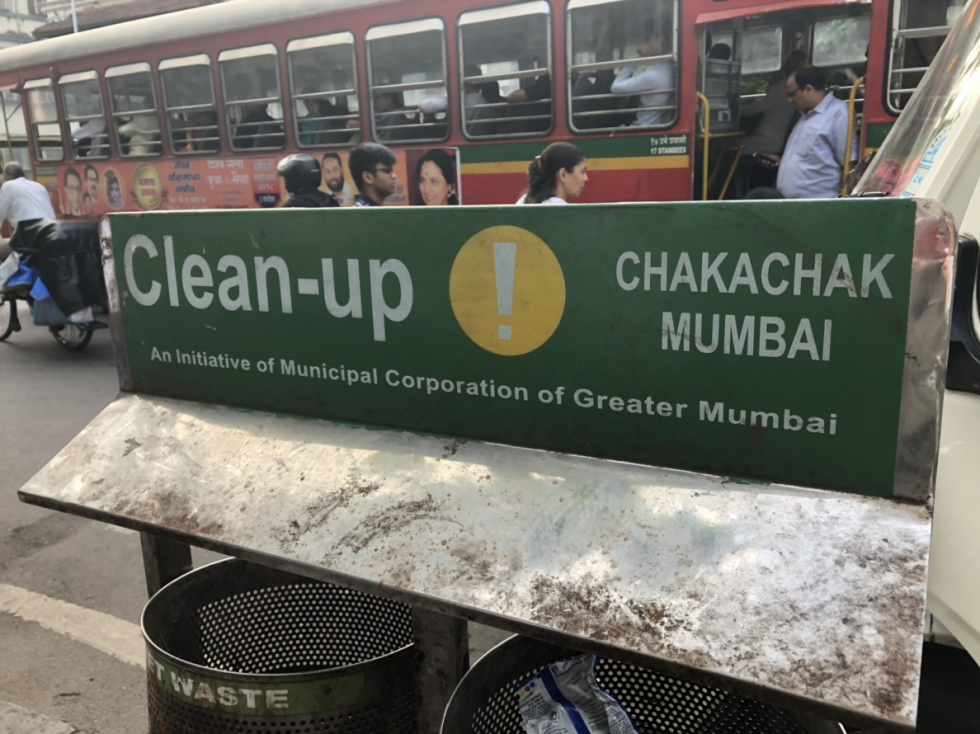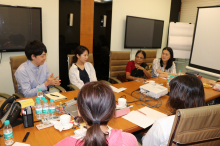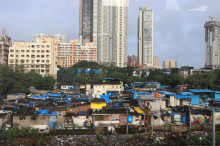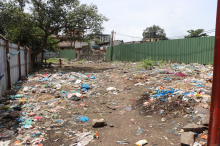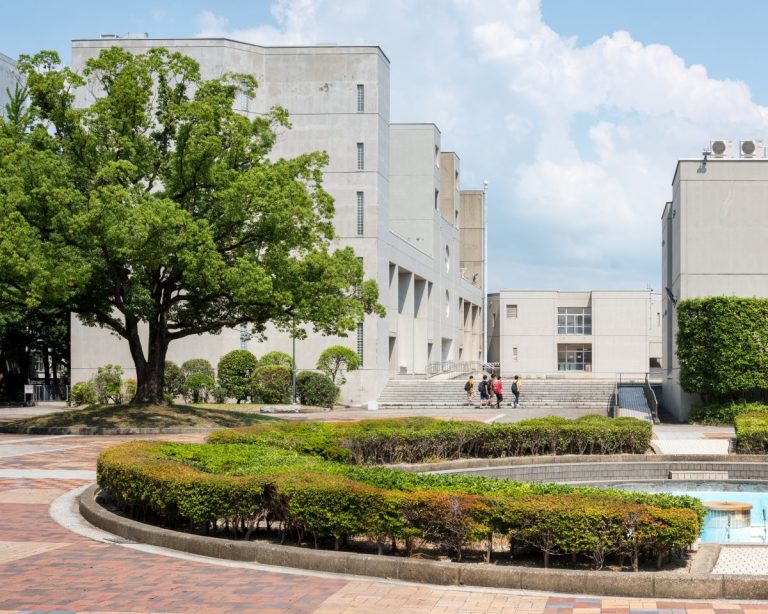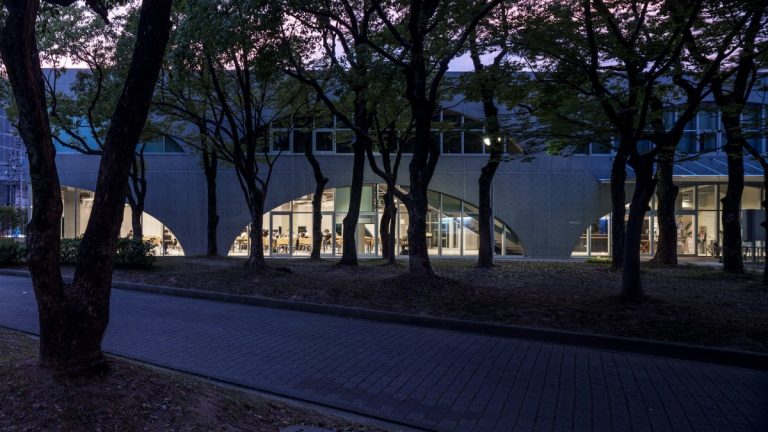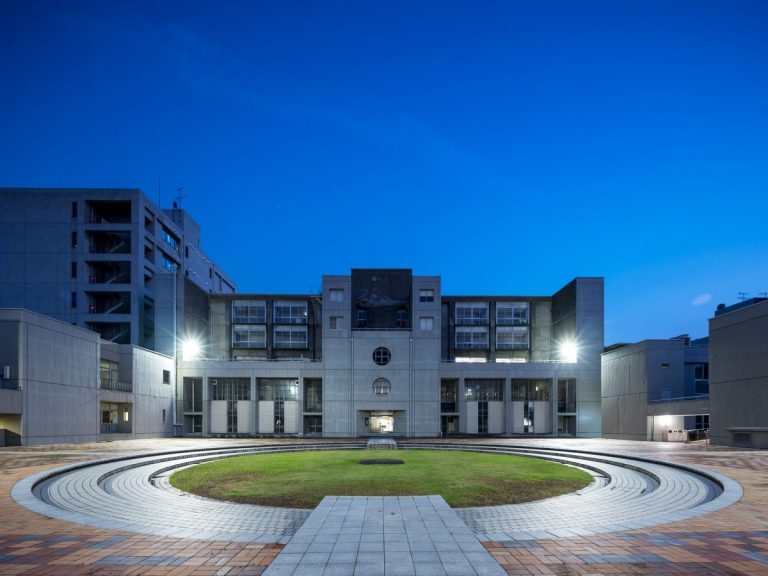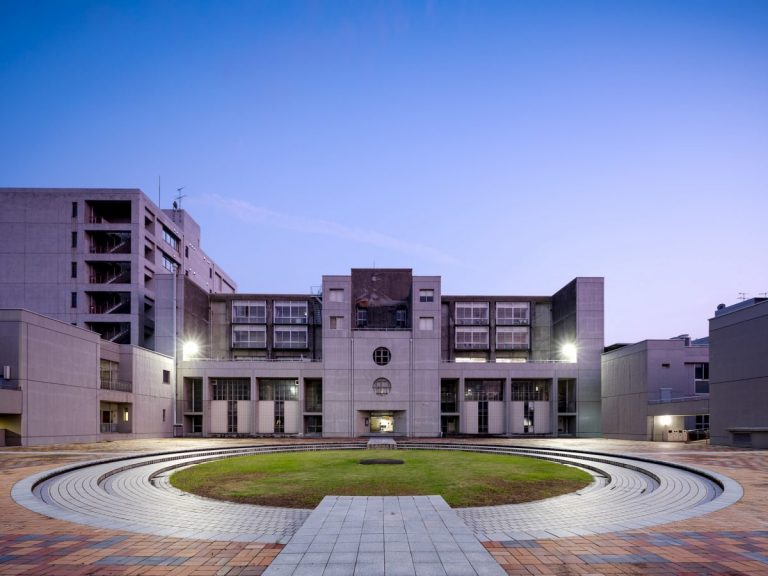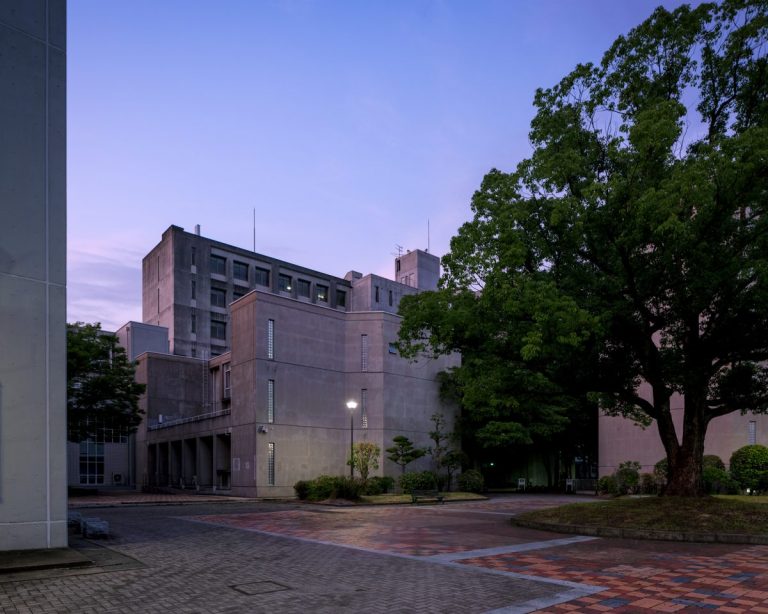Kyushu University & Kao—SDGs Creative Collaboration Student Report
 As the first step in its “SDGs Design Social Partnership Program,” the SDGs Design Unit partnered with Kao Corporation in holding the “Kyushu University & Kao SDGs Creative Collaboration” to produce works that will help solve societal problems.
As the first step in its “SDGs Design Social Partnership Program,” the SDGs Design Unit partnered with Kao Corporation in holding the “Kyushu University & Kao SDGs Creative Collaboration” to produce works that will help solve societal problems.
Using ideas that came out of the Kickoff Workshop
held in May 2018, the Unit is creating picture books and other products focusing on hygiene problems affecting developing countries. In August of the same year, students visited Thane Elementary School in Bhiwandi slum on the outskirts of Mumbai, India in order to carry out a user survey and interview local experts.
Here is a report on problems, and possible solutions to them, in India, as seen by students who were involved with the workshop and subsequent steps leading to creating design products.
Student Report: Completion of a Field Survey on the Outskirts of Mumbai, India
We strove to make design proposals, based on the theme of “beauty,” for achieving the SDGs.
First, at a workshop
held in May, we learned that in developing countries, an issue faced by many women is early marriage (child marriage) to a partner chosen by their parents, which makes it difficult for these women to live their own lives. Wanting to make a support system that would help these women, we suggested a program for presenting them with daily necessities and beauty products from Japan. We realized that this idea needed more depth after receiving a variety of input, including questions on what sort of program is really necessary and whether we could align the program more closely with the women in this local area.
After this discussion, we did a survey of literature and carried out interviews in order to deepen our knowledge of women’s issues in developing countries. We truly struggled, however, with the difficulty of thinking with the mindset of women in developing countries, given our very different environment living here in Japan. At this point, we narrowed our focus to India, an Asian country experiencing rapid growth while facing many problems. We decided to dig into real issues as they would emerge through an on-site survey.
In a field study performed on the outskirts of Mumbai in August, we gathered input from Japanese people living in the area, as well as locally active people who have spent many years striving to solve various issues, such as educational problems and women’s rights problems. From this, we were able to further our understanding of the issues that need to be addressed, the ways that Japanese people conceptualize India, and the mindset and culture that make up the country of India. We were able to see the insides of actual slum residences, listen to the words of elementary school students and teachers, and get a close-up view of how the local people live. We also learned how the caste system has had a deep and long-standing influence on the problem we were targeting (women’s issues), as well as hygiene, education, and many other problems. In India, cleaning is considered a foul task because it is work carried out by the Dalits (Untouchables). It appears that there is poor awareness of maintaining cleanliness in shared public spaces, given the large amount of rubbish thrown along the roadsides.
Through these surveys, we hoped to create an opportunity to change the mindset towards castes and encourage an equitable and clean India by having everyone clean public spaces together, regardless of social standing. To that end, we focused on the connection between culture and cleaning in India, and targeted children—the ones who will shoulder the future of the country. We proposed a system and some strategies for awarding skillful cleaning in order to create an enjoyable mindset toward collectively cleaning one’s elementary school, which is the public space that is closest to these children.
By having children experience at a young age fair recognition for cleaning, while also experiencing the cooperative effort to beautify their shared space, we hope that their values will change and that greater change will be prompted in India as well.
(Emi Sakai & Mami Shirokawa, 4th year Kyushu UniversitySchool of Design students)
![九州大学イノベーションデザインネクスト[KID NEXT]](https://www.kidnext.design.kyushu-u.ac.jp/wp-content/themes/kidnext/img/logo_header.png)
